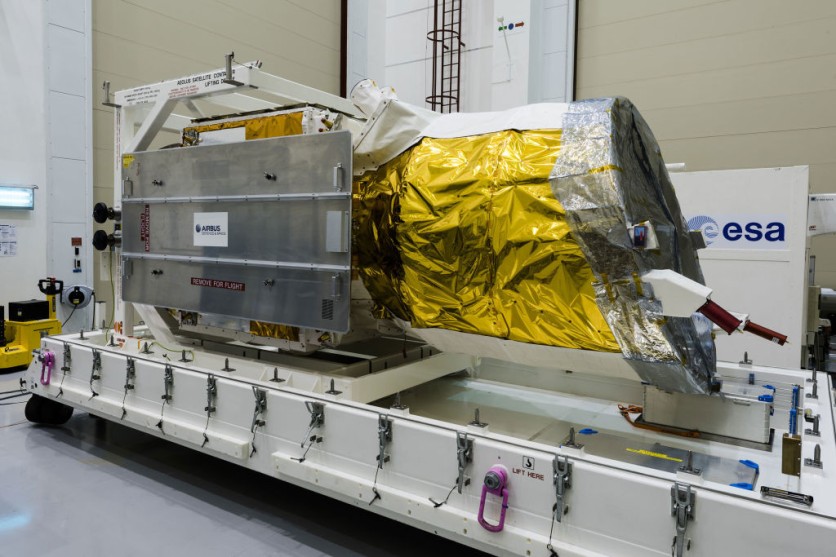The dead satellite Aeolus will make its first controlled re-entry into the Atlantic Ocean thanks to the European Space Agency (ESA).
The 2018 debut of Aeolus has helped improve worldwide predictions by giving European meteorological centers useful weather data.
Concerns regarding space sustainability and environmental preservation are brought up by the growing number of active satellites and space trash.

(Photo: M. Pedoussaut/ESA via Getty Images) In this handout photo provided by the European Space Agency (ESA), ESA's Aeolus satellite is packed up at Airbus in Toulouse, France on June 4, 2018.
Better Options
In order to reduce the risk of debris, defunct satellites like Aeolus normally burn up at an altitude of 50 miles. ESA models, however, indicate that some debris could escape the fire.
The ESA's dedication to safe space operations was demonstrated by mission controllers who utilized the last of Aeolus' fuel to steer it down to Earth, lowering the chance of damage to people, property, or other satellites.
In addition to gathering critical information, the ESA's mission to control Aeolus' re-entry intends to establish a precedent for future satellite disposal.
This knowledge will enhance satellite re-entry dynamics, allowing for more accurate forecasts and planning for upcoming disposals. The productive mission can be used as a benchmark for ethical space debris control and long-term sustainability.
UK Space Agency
In addition to gathering critical information, the ESA's mission to control Aeolus' re-entry intends to establish a precedent for future satellite disposal.
This knowledge will enhance satellite re-entry dynamics, allowing for more accurate forecasts and planning for upcoming disposals.
The productive mission can be used as a benchmark for ethical space debris control and long-term sustainability.
Aeolus' Space Adventure
After the Greek legendary character Aeolus, the Aeolus satellite was launched in 2007, although there were delays. It altered Earth's wind profiles all over the planet and was created by Stevenage-based Airbus Defence and Space.
Despite its three-year mission, Aeolus continued to produce useful data for about two years after it was supposed to.
Space Possibilities
The achievement of Aeolus in enhancing weather predictions shows the promise of space-based missions for sustaining life on Earth. The data from the satellite improves weather forecasts, ensures safety, and tackles global issues.
This highlights the effectiveness of space technology in expanding knowledge in the sciences and tackling global problems.
The final voyage of Aeolus in the Atlantic Ocean serves as a demonstration of ethical space operations, sustainability, and environmental preservation. Support from the UKSA and international partnerships advance safe satellite removal and upcoming space technologies.
Related Article : Can European Space Agency Replace Russian Technologies?

![Apple Watch Series 10 [GPS 42mm]](https://d.techtimes.com/en/full/453899/apple-watch-series-10-gps-42mm.jpg?w=184&h=103&f=9fb3c2ea2db928c663d1d2eadbcb3e52)



